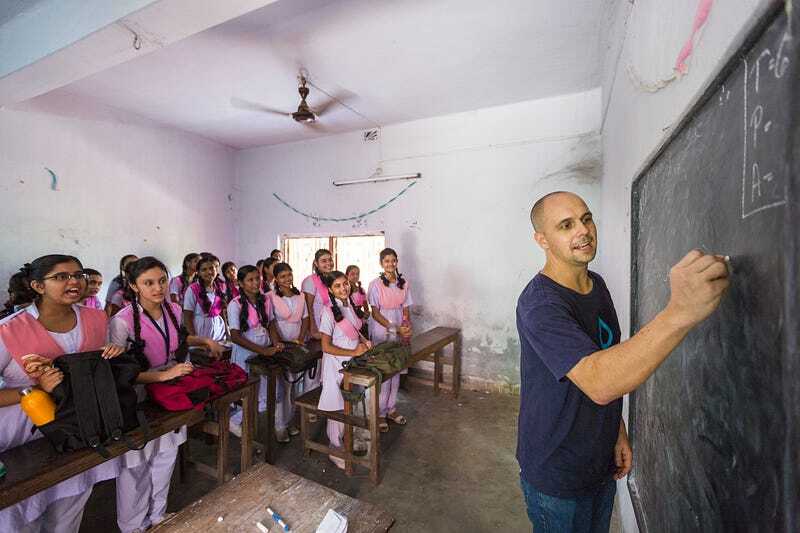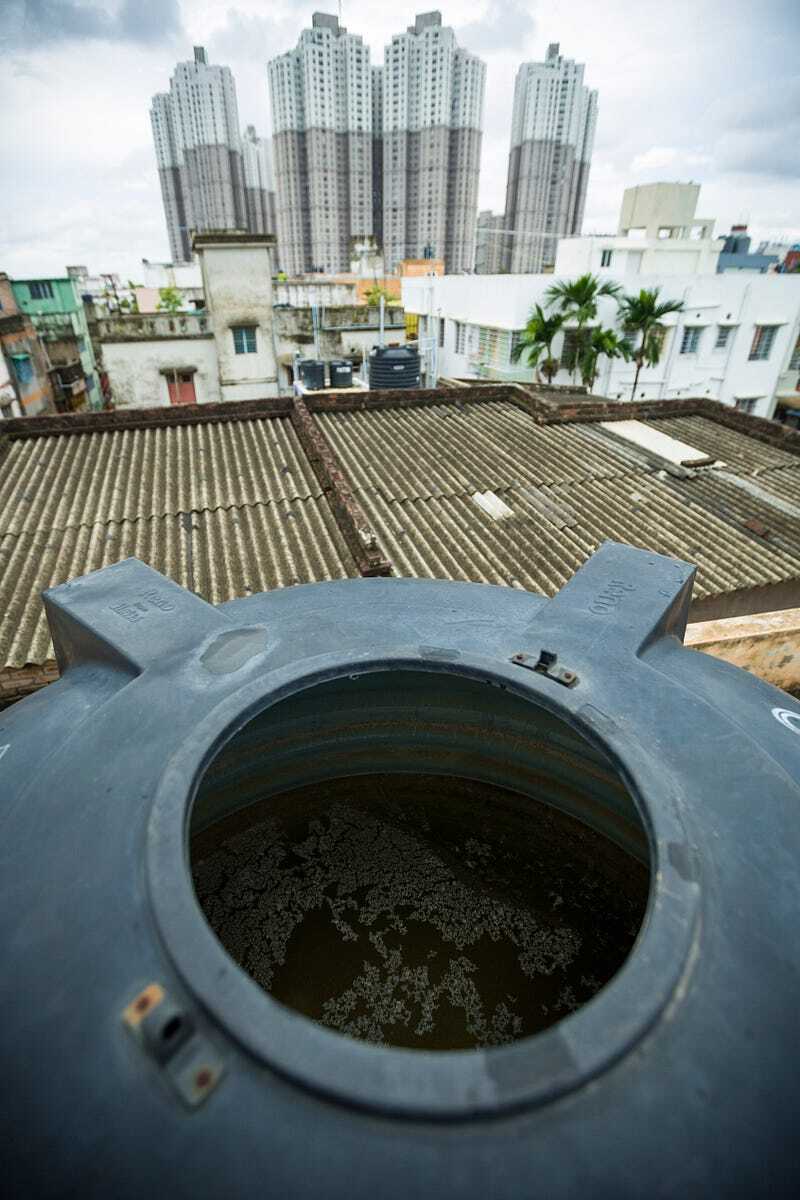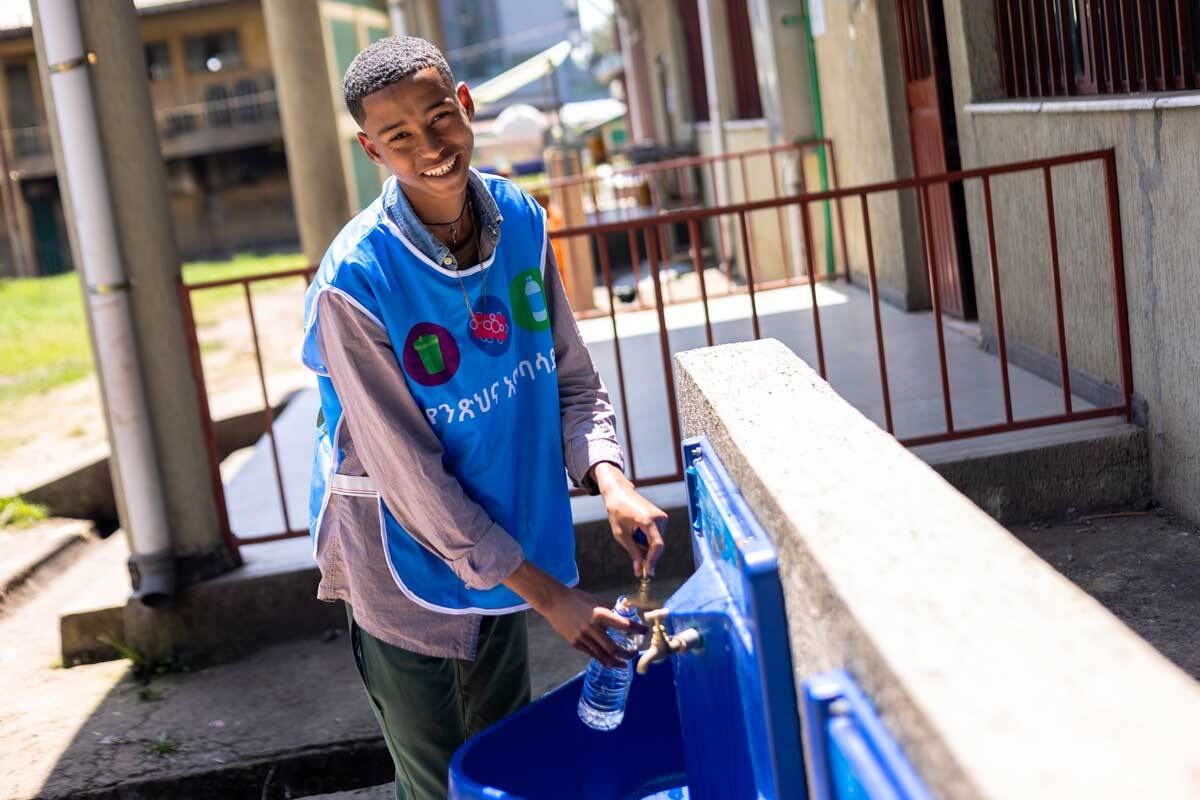Articles and information about Splash and the work we do.

October 8, 2016
The Hardest to Reach Are Not The Farthest Away

Why does Splash focus on urban areas? When I joined the Splash team two years ago, this question was at the forefront of many external conversations. It’s been encouraging to hear these conversations gradually evolve. Earlier last month I attended World Water Week in Stockholm, Sweden, where I heard water experts from around the world ask the inverse of these questions: Why aren’t we talking more about urban needs and realities? What about cities? Although the water, sanitation, and hygiene (WASH) sector has historically been focused on rural areas, a shift is taking place as more attention is paid to the growing needs of the urban poor.
This shift represents an important, though delayed, response. More than 54% of the world’s population now lives in urban areas, a proportion that is expected to rise to 70% by 2050. The majority of this urban growth will take place in developing countries — especially in Asia and Africa, where birthrates soar and families are moving in droves from the countryside to cities. The combined population of the world’s least developed countries will double by 2050. If we are not looking ahead at how to improve critical services and infrastructure in the world’s poorest and densest cities, we are missing the opportunity to reach the poorest where they are — and where they will be. Existing WASH infrastructure will deteriorate as it buckles under the weight of new users. The “last mile” (a popular term in global development), will take on a new face in the coming decades as we struggle to serve those who are moving closer and closer to urban epicenters.

That is why Splash fills a unique role: improving WASH services in major urban areas in Asia and Africa. Through our work in schools, hospitals, orphanages, and shelters, we focus specifically on kids — helping to protect those who are most vulnerable to water-borne disease. We simultaneously aim to influence the behaviors and shift the social norms of those surrounding these kids, working in close partnership with local governments as well as the staff at the institutions we serve.
Splash believes that the first step in solving a problem is quantifying it. So between October 2014 and February 2016, we partnered with local governments and independent surveyors and water quality labs to coordinate citywide surveys assessing WASH coverage at every government-funded school in Addis Ababa, Ethiopia; Kolkata, India; and Kathmandu, Nepal. Never before had the status of urban school WASH coverage been so comprehensively examined. The availability and quality of WASH infrastructure was assessed and water quality samples were taken from nearly 3,000 schools serving more than 1,000,000 children — totaling 100% of public schools in each city. The data revealed the unequivocal need for increased WASH investments in urban schools. While these schools do indeed have access to water points, they largely lack safe and consistently available drinking water. The aggregate drinking tap-to-student ratios were more than double that of minimum global standards and the toilet-to-student ratios were even worse. Less than 7% of all schools surveyed had soap available for hand washing.
Solutions to these problems are available now and Splash believes that their impact can extend beyond the school walls. Water, sanitation, and hygiene infrastructure improvements must be coupled with initiatives that ensure the sustained maintenance and functionality of WASH hardware while changing behaviors for the long term. Kids and schools are access points for influencing parents, families, and communities and are thus important change agents in strengthening intergenerational values towards WASH.

It may not take long hours of travel to physically reach the kids living in these cities — but it will surely take long hours of problem solving, coordination and collaboration across sectors, and creative advocacy and blended financing to address the complexity of urban WASH challenges. Kids living in urban poverty may not be the hardest to reach geographically, but they will continue to be overlooked unless our sector turns its collective powers of attention and resources towards their realities. Our mandate to serve all humans with safe water and adequate and adequate sanitation and hygiene by 2030, as per the UN’s Sustainable Development Goals, is clear. Splash has been working towards these goals for nine years. Our efforts to improve the lives of kids in urban institutions has never been more pressing. The question should no longer be why? — it should be how?

